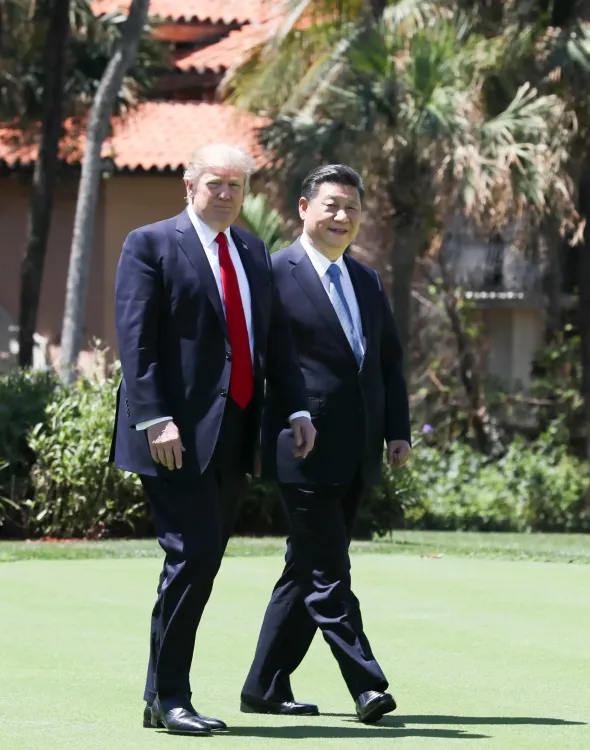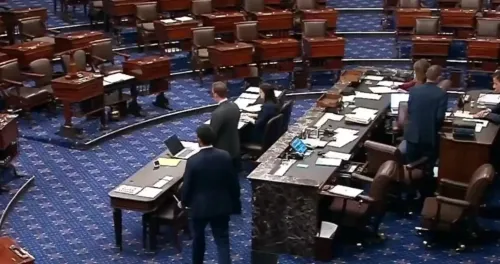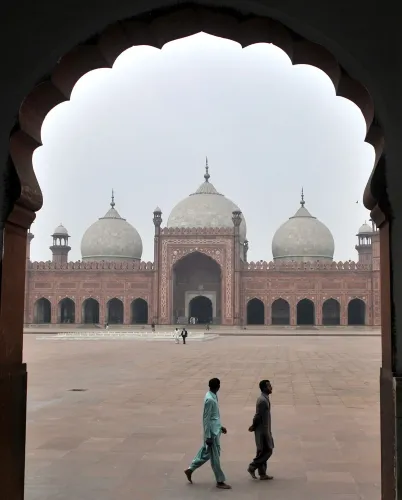What Will Trump and Xi Discuss in South Korea?

Synopsis
Key Takeaways
- Trump and Xi's meeting is significant for global diplomacy.
- Key issues include trade and technology controls.
- This meeting could influence US-China relations moving forward.
- Both nations have committed to enhancing bilateral ties.
- Recent agreements may set the tone for future discussions.
Washington, Oct 30 (NationPress) The US President Donald Trump and Chinese President Xi Jinping are set to meet on Thursday in the South Korean port city of Busan. This gathering marks their initial face-to-face interaction since Trump resumed office in January and is anticipated to address crucial strategic, economic, and geopolitical matters, potentially paving the way for a de-escalation of tensions between the two largest economies in the world.
Prior to the meeting, President Trump expressed his enthusiasm on Truth Social: “Very much looking forward to my meeting with President Xi of China. It will take place in a few hours! President DJT.”
Trump arrived in South Korea on Wednesday after visiting Japan, as part of an Asia tour aimed at bolstering regional partnerships and tackling trade and defense challenges. The upcoming meeting follows recent escalations regarding tariffs and technological regulations, alongside China’s recent restrictions on rare earth material exports.
Earlier, while on board Air Force One, Trump hinted that he might discuss Nvidia’s advanced Blackwell chips with Xi.
"I think we may be talking about that with President Xi," Trump stated. This comment raised concerns in Washington, with experts suggesting that lifting export restrictions on advanced semiconductors could enable Beijing to narrow the technological gap in AI and undermine American leadership.
Rush Doshi, a Senior Fellow at the Council on Foreign Relations and former National Security Council staffer under the previous Biden administration, remarked on X, “...it seems we are effectively going to dismantle the export control regime on AI chips just as Beijing builds out its regime on rare earth minerals and magnets.”
On October 20, China and the US came to an agreement on a “framework” for a trade deal following discussions involving Treasury Secretary Scott Bessent, US Trade Representative Jamieson Greer, and China’s Vice Premier He Lifeng in Malaysia.
Bessent noted that the agreement encompassed a ‘final deal’ regarding TikTok, China’s import of soybeans, and a one-year delay on export controls concerning rare earth materials.
Li Chenggang described the discussions as “candid and in-depth,” covering issues such as export controls, tariffs, the US investigation into Chinese shipbuilders, and the enhancement of bilateral trade, while indicating a “preliminary consensus” was reached.
Shortly after the framework agreement, Chinese Foreign Minister Wang Yi spoke with US Secretary of State Marco Rubio, emphasizing the significance of maintaining strong bilateral relations.
During his first tour of Asia in his second term, Trump also announced trade agreements with Malaysia and Cambodia, alongside framework deals with Thailand and Vietnam, which included commitments regarding critical minerals.
On October 27, the US and Japan solidified a critical minerals and rare earths agreement, as both nations pledged to usher bilateral relationships into a “new golden age.”









